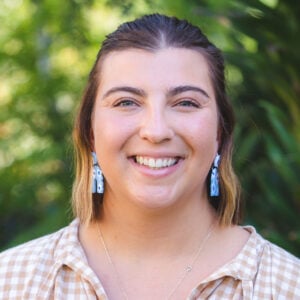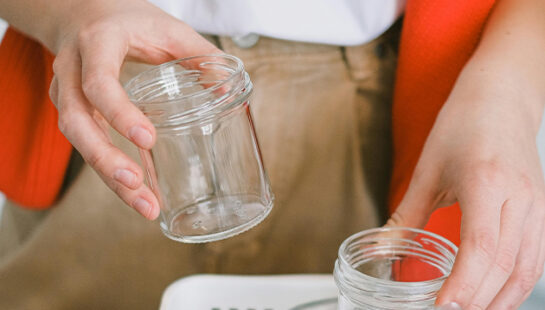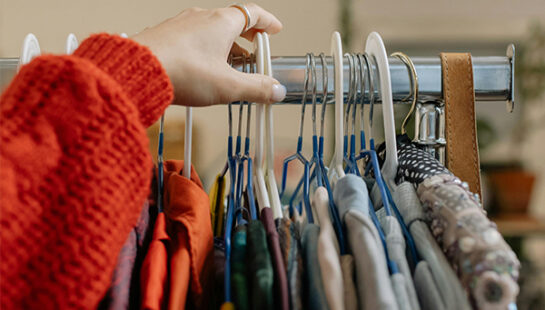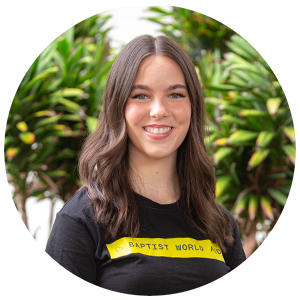Here to answer some of your burning questions and provide you with practical solutions, Craig Reucassel is back hosting the latest season of the ABC’s War on Waste. These three episodes shine a light on some of the biggest contributors to Australia’s waste crisis: plastic, food and fashion.
Here’s some facts to get your head around:
- In Australia, we throw out over 2.6 million tonnes of plastic waste each year. That’s over 100kg of plastic per person!
- The average Australian household discarded $2,500 worth of food last year. That’s 3.2 million tonnes of mostly fruit, vegetables, bread and leftovers!
- Ultrafast fashion retailer, Shein, released 315,000 new styles on their website in the four-month period from January to April last year. That’s 311,000 more than fast fashion retailer, H&M, over the same period!
Reducing Our Waste
I could go on and on with alarming statistics, shared this season, that highlight the enormity of our waste crisis in Australia and across the globe. But the situation isn’t totally hopeless. There are plenty of actions each of us can take today to reduce the impact of our consumption habits on the planet.
Each episode provides helpful ways that you can reduce your household waste, including:
- Conduct an audit of all the single-use plastics in your rubbish bin and as a family, discuss what you can change or go without, to avoid accumulating these plastics
- Grow your own produce, which not only reduces your reliance on plastic packaging, but gives you greater appreciation for food and encourages you to use it wisely
- Host a clothes swap to keep your clothes in circulation longer, and help curb the need to update your wardrobe with brand new clothes.
This season also provides good news stories from organisations like OzHarvest, which rescues surplus food from retailers and delivers it to charities feeding people in need; and social enterprises like Second Stitch, which helps you repair and alter your clothes to keep them out of landfill.
No Quick Fix
Over the last six years, the War on Waste has undoubtedly raised awareness and helped to drive positive behavioural change. Some examples are our use of compost bins and reusable coffee cups; governments’ bans on plastic bags; and the availability of odd-shaped fruit and vegetables in supermarkets that would otherwise go to waste.
What a three-episode season can’t achieve though, is a deep dive into the nuances and complexities of resource recovery, reuse and recycling across a broad range of product and material types. We’re all too aware of the collapse of REDcycle, which was hailed as the solution to our soft plastics problem until a warehouse fire uncovered the reality of stockpiled plastics, degrading in warehouses across the country. If this has taught us anything—and I believe it has taught us a lot—it’s that well-intentioned, innovative ideas are extremely hard to launch and even harder to scale. There is no quick and easy fix to overcome the rate we’re creating waste. It starts with each one of us changing our habits to consume less and take responsibility for our own waste.
It’s time to ask ourselves some hard questions, like ‘how is my lifestyle impacting the planet and communities overseas who are inundated with our waste?’ As we endeavour to reduce our environmental impact at large, we must be cognisant of the need for a just transition for communities globally, whose livelihoods are presently dependent on both production and waste processing which is a byproduct of our waste being sent overseas, complexly, simultaneously creating environmental crisis and income stream.
What You Can Do
At Baptist World Aid Australia, we believe in a better world for all. And this includes a more sustainable future for all. In a society that celebrates freedom and convenience, living with self-imposed limits on our consumption and our waste creation is challenging and countercultural. But we don’t just need a handful of individuals doing sustainability perfectly; we need government, civil society, business and individuals coming together and acting and advocating for change to tackle our waste crisis.
Keen to get started? Here’s some articles that might help.
- If you would like to learn more about cost-effective ways to have an ethical and sustainable wardrobe click here.
- If you would like to reduce your waste, click here.
- If you would like to learn how one family stopped shopping for a year, click here.
War on Waste Season 3 is available to view now on ABC iView.



 Sophia Russell,
Sophia Russell,

 Keziah Redelinghuys,
Keziah Redelinghuys,